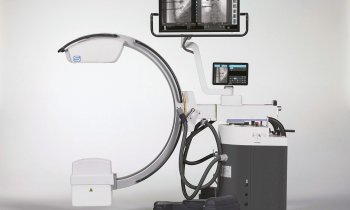Information helps healing
Patients fear lack of knowledge may make them worse
Most patients who receive health information change lifestyle and believe they reap benefits, according to a study carried out in Europe and the USA.
Almost two thirds of the 4,500 patients surveyed - all suffering chronic conditions - said they had changed their behaviours based on health information received, and over three quarters of these people perceived a positive impact on their health. Yet the survey also revealed that over half of the European patients felt they did not know enough about their disease and its treatments to confidently manage their health, and 50% were also concerned that their lack of knowledge might worsen their conditions.
Commissioned by the drug company Pfizer, the research was devised to explore levels of health information received by patients suffering from three chronic diseases - asthma, adult onset (type II) diabetes and heart disease. Conducted between June and September 2004, the survey gathered the views and experiences of the 4,500 patients from eight European countries (Finland, France, Germany, Italy, Poland, Spain, Sweden, UK) and the USA.
Baroness Sally Greengross, Co-Chair of the Alliance for Health and the Future, said: ‘Without question, both patients and the public at large are becoming more interested in, and more knowledgeable about health matters - shown clearly by the numbers of hits across the world on health websites. A more informed population should be celebrated and further encouraged because, as this survey shows, when patients receive information on their condition, a high percentage of them change their behaviour leading to a positive impact on health.’
European health knowledge is inconsistent
The survey also established the knowledge levels of all respondents by testing their awareness of the basic facts they might be expected to know about their condition, in order to effectively manage it.
On the whole, across the three disease areas, US patients displayed greater knowledge of their conditions. (Only 3% of European heart disease patients, for example, displayed an excellent knowledge of their condition compared with 19% of US respondents). There were also significant differences in knowledge levels across European countries. For example, 43% of UK diabetes patients displayed ‘excellent’ knowledge of their condition, whereas other countries showed far lower figures: Italy (23%), Germany (17%), Spain (15%) and Poland (4%). Similarly, significantly more UK respondents with asthma showed ‘excellent’ knowledge of their condition than, for example, Poland.
Surprisingly, high proportions of respondents from many European countries displayed ‘poor’ knowledge of heart disease - Spain (92%); Italy (87%); France (81%).
‘These differences in knowledge across Europe highlight the importance of improved information and education in the health arena. Better and more cost-effective management, as well as the prevention of diseases, is possible only if patients have access to, and a good understanding of, accurate information from reliable sources,’ said Jack Watters, Pfizer Europe/Canada Vice President of Medical Affairs.
To obtain health information the European patients used a wide number of sources, including pharmacists, newspapers/magazines, TV and radio, books on health, the internet, friends/family, patients support groups, etc. However, for 90% of European and US respondents, the main source of health information turned out to be their doctors and nurses.
‘People with diabetes may only see their healthcare professional for a few hours a year, yet they have to manage their own condition every day. Patient education must be a priority,’ said Simon O’Neill, Director of Care and Policy, Diabetes UK. (With over 170,000 members Diabetes UK is Britain’s largest organisation for this illness). ‘This survey indicates that the majority of people act on the education they receive and achieve positive health benefits,’ he added. ‘However, the survey also highlights concern about the lack of information available. This must be addressed so all people with diabetes have accurate, up to date knowledge on their condition.’
01.03.2005








